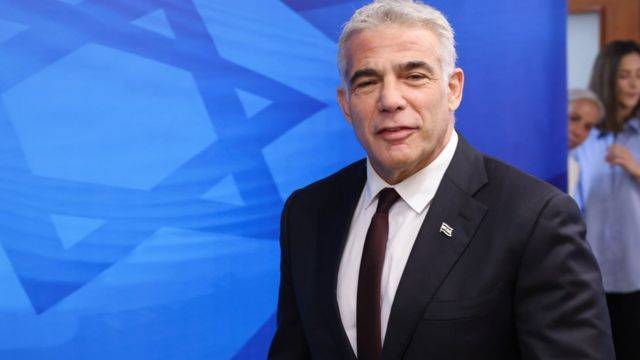On Wednesday, Israel stated that the United States' intention to reopen its consulate in Jerusalem, which typically serves as a base for diplomatic communication with Palestinians, is a "bad idea" and could destabilize Prime Minister Naftali Bennett's new government. The administration of former President Donald Trump supported Israel's demands for Jerusalem to be its capital by relocating the US embassy from Tel Aviv to the city. Subsequently, the consulate located in western Jerusalem was merged with the embassy. This move was among several actions that angered Palestinians, who seek East Jerusalem as the capital of a future state.
President Joe Biden has pledged to restore relations with the Palestinians, support a two-state solution, and move forward with reopening the consulate that has been closed since 2019. The embassy currently manages Palestinian affairs. Israeli Foreign Minister Yair Lapid said at a press conference when asked about reopening the consulate, "We think it’s a bad idea... Jerusalem is the sovereign capital of Israel and Israel alone, and therefore we don’t see it as a good idea." He added, "We know that the administration (Biden administration) has a different perspective on this, but since it’s happening in Israel, we are confident they are listening to us closely."
Palestine Liberation Organization official Wasel Abu Yusuf told Reuters that the Israeli rejection of reopening the consulate was expected, adding that Israel is trying to maintain the status quo and hinder any political solution. When asked about Lapid's statements, a spokesperson for the US embassy said, "As Secretary Blinken announced in May, the United States will proceed with the process of reopening our consulate in Jerusalem. We have no further information to share at this time." The spokesperson added that the US has not reversed its decision to relocate the embassy to Jerusalem or its recognition of the city as Israel's capital.
Israel seized East Jerusalem, as well as the West Bank and Gaza Strip, during the 1967 war and considers the entire city its capital, a status that lacks international recognition. In recognizing Jerusalem as Israel's capital in 2017, Trump stated he did not take a position on "any issues related to the final status, including the borders of Israeli sovereignty in Jerusalem." Bennett, a nationalist leading a multi-party coalition, opposes a Palestinian state. Lapid noted that reopening the consulate could destabilize Bennett's government, which ended the lengthy rule of former Prime Minister Benjamin Netanyahu in June. He added, "We have an interesting but fragile structure for our government, and we believe this could destabilize this government, and I don’t think the US administration wants that." He went on to say that divisions among Palestinians also cast doubt on the prospects for diplomacy, stating, "I believe in a two-state solution... but we must acknowledge the reality that it is unfeasible in the current situation."




